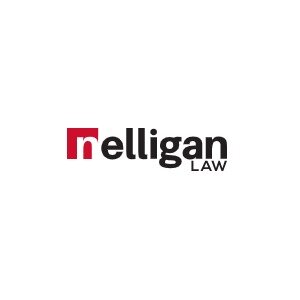Best Financial Services Regulation Lawyers in Canada
Share your needs with us, get contacted by law firms.
Free. Takes 2 min.
Or refine your search by selecting a city:
List of the best lawyers in Canada
About Financial Services Regulation Law in Canada
Financial Services Regulation in Canada encompasses a complex framework of laws and regulations designed to oversee and manage financial institutions and market participants. It ensures the stability and integrity of financial markets, the protection of consumers, and the prevention of financial crimes. The system is a blend of federal and provincial jurisdiction, involving multiple regulatory bodies. At the federal level, the Office of the Superintendent of Financial Institutions (OSFI) plays a major role, while provincial authorities regulate insurance companies, credit unions, and the securities industry within their regions.
Why You May Need a Lawyer
There are numerous situations where legal assistance in Financial Services Regulation may be necessary:
- Compliance Issues: Ensuring your business adheres to existing financial regulations and responding to audits or investigations by regulatory bodies.
- Licensing and Registration: Navigating the process of acquiring licenses and registrations required for operating in the financial services industry.
- Mergers and Acquisitions: Carrying out due diligence and structuring acquisitions or mergers in compliance with financial regulations.
- Litigation and Dispute Resolution: Representing clients in disputes involving financial transactions, fraud, or fiduciary responsibilities.
- Consumer Protection Laws: Advising on laws relating to fair treatment of consumers and personal data protection.
Local Laws Overview
Canada's Financial Services Regulation is characterized by a dual regulatory framework involving both federal and provincial authorities. Key aspects include:
- Federal Regulation: Primarily through OSFI, focusing on banks, insurance companies, and federal credit unions.
- Provincial Regulation: Each province has its own regulatory body overseeing securities, credit unions, and insurance companies operating within its borders.
- Anti-Money Laundering: The Financial Transactions and Reports Analysis Centre of Canada (FINTRAC) oversees and enforces anti-money laundering measures.
- Consumer Protection: Regulations aimed at safeguarding consumer rights in financial dealings, governed by both federal and provincial legislation.
Frequently Asked Questions
1. What regulatory bodies oversee financial services in Canada?
Financial services are overseen by both federal and provincial bodies. Federally, the OSFI regulates financial institutions, while securities, credit unions, and insurance are locally regulated by provincial authorities.
2. What are the penalties for non-compliance with financial regulations?
Penalties can range from fines to revocation of licenses or registrations, and in severe cases, criminal charges might be pursued.
3. How often do regulatory requirements change?
Regulatory requirements can change frequently, as laws adapt to new challenges and issues. Regular monitoring of regulatory updates is essential for compliance.
4. Can non-Canadians provide financial services in Canada?
Yes, but they must comply with Canadian regulations, often requiring specific licensing or partnerships with Canadian entities.
5. What is the role of FINTRAC?
FINTRAC is Canada's financial intelligence unit responsible for ensuring compliance with anti-money laundering and anti-terrorism financing laws.
6. Do startups in the financial tech sector face different regulations?
Startups must adhere to the same regulatory framework as established firms, though specific guidance and resources may be available to assist new companies in achieving compliance.
7. How does Canada protect consumers in financial transactions?
Canada's regulations include measures for transparency, fairness, and protection of personal data through various consumer protection laws.
8. What is OSFI’s mandate?
OSFI’s mandate is to ensure that federally regulated financial institutions and pension plans are in sound financial conditions and meet the highest standards of governance and oversight.
9. How can I report a financial crime in Canada?
Financial crimes can be reported to FINTRAC, local law enforcement, or specific provincial regulators depending on the type of crime.
10. Is legal representation mandatory for financial services institutions?
While not legally mandatory, having legal representation is highly advisable to navigate the complex landscape of financial regulation effectively.
Additional Resources
Below are recommended resources for further information on Financial Services Regulation in Canada:
- Office of the Superintendent of Financial Institutions (OSFI): Comprehensive policies, guidelines, and updates on federally regulated financial institutions.
- Financial Transactions and Reports Analysis Centre of Canada (FINTRAC): Information on anti-money laundering and terrorism financing laws.
- Provincial Securities Commissions: Provincial regulatory bodies provide resources and regulations for securities governance.
- Canadian Consumer Financial Protection Bureau: Offers resources on consumer rights and protections in the financial sector.
Next Steps
If you need legal assistance in Financial Services Regulation, consider the following steps:
- Assessment: Identify the specific area of financial regulation where you require assistance.
- Research: Look for legal experts who specialize in financial services regulation and have a clear understanding of both federal and provincial laws.
- Consultation: Schedule a consultation with a legal professional to discuss your needs and options.
- Documentation: Gather all necessary documents and information pertinent to your case to aid the legal professional in providing accurate advice and assistance.
- Engagement: Once you've selected a lawyer, engage them to help resolve your regulatory issue or maintain compliance with relevant laws.
Lawzana helps you find the best lawyers and law firms in Canada through a curated and pre-screened list of qualified legal professionals. Our platform offers rankings and detailed profiles of attorneys and law firms, allowing you to compare based on practice areas, including Financial Services Regulation, experience, and client feedback.
Each profile includes a description of the firm's areas of practice, client reviews, team members and partners, year of establishment, spoken languages, office locations, contact information, social media presence, and any published articles or resources. Most firms on our platform speak English and are experienced in both local and international legal matters.
Get a quote from top-rated law firms in Canada — quickly, securely, and without unnecessary hassle.
Disclaimer:
The information provided on this page is for general informational purposes only and does not constitute legal advice. While we strive to ensure the accuracy and relevance of the content, legal information may change over time, and interpretations of the law can vary. You should always consult with a qualified legal professional for advice specific to your situation.
We disclaim all liability for actions taken or not taken based on the content of this page. If you believe any information is incorrect or outdated, please contact us, and we will review and update it where appropriate.
Browse financial services regulation law firms by city in Canada
Refine your search by selecting a city.














